Paul Pena
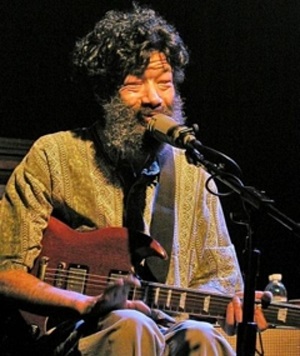
Paul Pena
Hyannis, Massachusetts, USA, 1950 – San Francisco, California, USA, 2005
Instrumentalist (guitar), composer, singer
“From all the sons of the Cape Verdean community in America that had some success in music, Paul Pena (originally Pina) is without a doubt the most intriguing and curious case”. Writes the journalist Joaquim Arena about Paul Pena in the Sapo website (04/20/2012 no longer available online). Grandson of cape Verdeans from Brava and Fogo that immigrated to the United States in 1919. Paul Pena suffered from congenital glaucoma which led to blindness at a young age. Besides this, he had other health issues, like pancreatitis and diabetes, dying at the age of 55.
As an artist, at a young age he manifested a vocation for music. He played guitar with his father and grandfather, and learned mornas, and at the same time he participated in the school choir. In his adolescence he participated in a contest for young talents and when he was in the University he played at bars. “But the first big event of his career was in 1969 when he had the opportunity to play at the Newport Folk Festival alongside with names like James Taylor, Joni Mitchell and Kris Kristofferson”, refers the website with his biography, stating that one year later he became completely blind. That didn’t keep him from moving to São Francisco and recording his first album: Paul Pena, edited in 1972 by Capital Records.
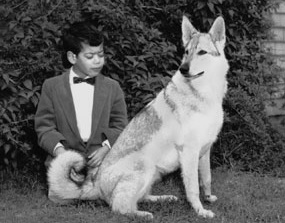
With his hoarse voice and striking compositions, he attracted attention in the world of blues. His biggest hit, that entered the tops in the USA, was “Jet airliner”, in the recording of 1976 of Steve Miller Band, one of the most known north American bands of blues-rock in the 1970’s. Because of disagreements with the Bearsville Records, with whom he had a contract, he was away from the studios for three decades. From that time there are only live recordings of participations in festivals or other artists’ concerts at which he was a guest: John Lee Hooker, B.B. King, Muddy Waters, among others. Only 27 years later his second album was released, New Train (2000).
In 1984, one day he heard on a shortwave radio an excerpt of a song that fascinated him. He spent years trying to identify it and in 1991 he discovered an album titled Tuva: Vozes da Ásia Central, with traditional music from Tuva, one of the old republics of the Soviet Union.
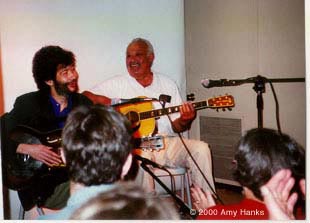
www.paulpena.com
He decided to learn that vocal technique and two years later he met Kongar-ol Ondar, an eminent person in this type of singing. He showed him what he knew, and his performance amazed the Tuva’s artist, leading to a friendship and projects together.
In 1995, Kongar-ol invited him to sing at a festival in his country. Paul Pena was the first north American to participate in the competition of Tuva’s traditional multi-harmonic vocal singing. He won the first prize and through his performance he became locally known as “Earthquake”.
With Kongar-ol, Paul Pena recorded the CD Genghis Blues mixing blues, morna, excerpts sung in Cape Verdean language and khoomel, Tuva’s music. Because of this he was nominated the blues ambassador in Tuva and in San Francisco the 1st of July was declared by the municipality as the Day of Paul Pena.
The trip to Tuva and the collaboration with the Asian musician resulted in a documentary also entitled Genghis Blues (1999), that received a public prize in the Sundance Film Festival and was nominated for an Oscar.
“The mix between morna, blues and Tuva’s music is a unique experience. In addition to having inscribed his name on the geography of masters of American blues, the originality of this cultural exchange is one of the biggest contributions of Paulo Pena to the world’s music”, from an article of Arena, which emphasizes that despite belonging to the second generation of Cape Verdean immigrants in the U.S.A, he never stopped referring to morna as one of his biggest influences.
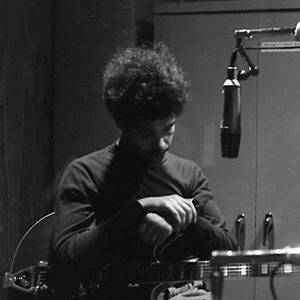
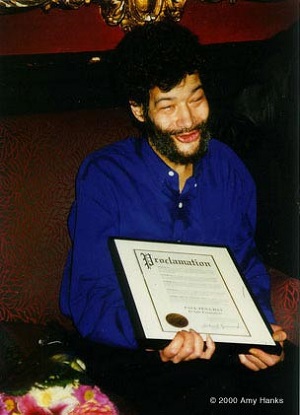
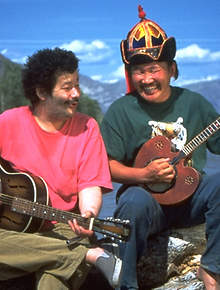
Discography
- Paul Pena, LP, Capitol Records, U.S.A, 1972.
- New Train, CD, Hybrid Recordings, U.S.A l/d, 2000 (recording from 1973).
- Genghis Blues, CD, Six Degrees Records, U.S.A l/d, 2000.
- Participation in the CD Deep in the Heart of Tuva: Cowboy Music from the Wild East, (various artists), 1996.
- Participation in Fly Walker Airlines, of T-Bone Walker Blues Band, 1972. Recorded live at the Montreaux Jazz Festival in 1972.
- Participation in Giant Killers, Big Bones and Paul Pena. Recorded live at the Freight and Salvage Coffee House, in Berkeley, California, 1991.
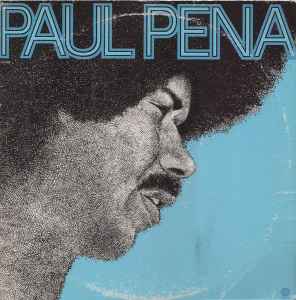
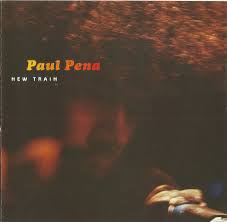
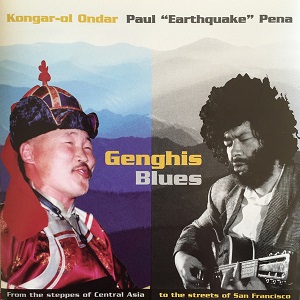
To know more
Genghis Blues, 1999, documentary directed by Roko Belic.